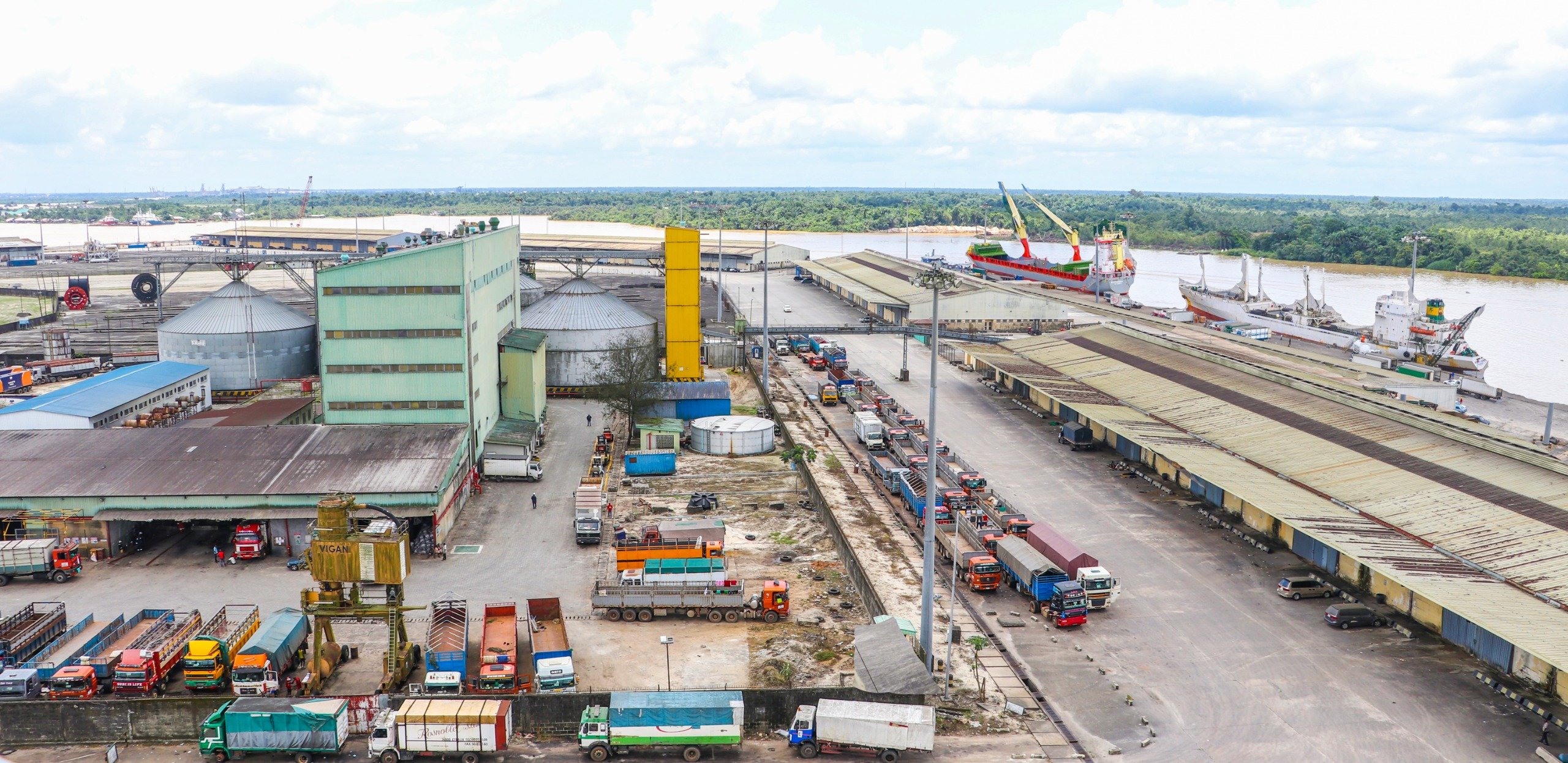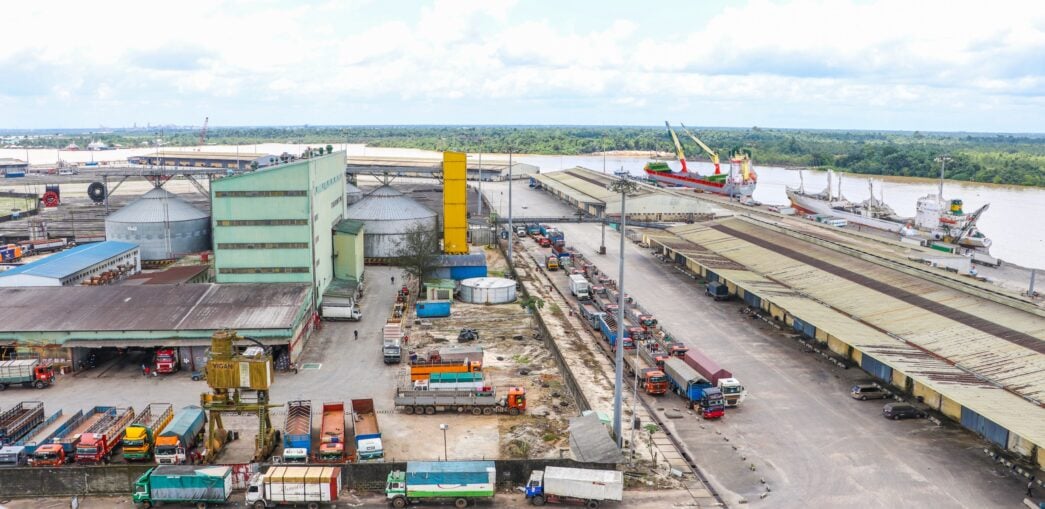BY JOY TAMAREBI
For the first time in years, the waterfronts of Warri, Koko, Sapele, and Burutu may soon begin to hum again. Barges glide past fishing canoes, cranes groan to life, and the chatter of dockworkers breaks through the silence that once hung over Delta Ports.
To the people of the Niger Delta — long defined by oil wealth but scarred by neglect — the revival of these ports feels like a long-delayed promise finally taking shape.
At the center of this resurgence is Dr. Abubakar Dantsoho, Managing Director of the Nigerian Ports Authority (NPA), whose deliberate push to modernize the Delta Ports is being hailed as one of the most community-relevant maritime interventions in recent memory.
From Abandonment to Renewal
The story of Delta Ports has long been one of lost potential. Once vibrant maritime corridors connecting Nigeria’s South-South region to global trade, the ports of Warri, Koko, Sapele, and Burutu gradually fell silent as infrastructure collapsed, channels silted up, and road access deteriorated.
Established in 1955 under the Port Act of 1954, Warri Port — which serves as the administrative headquarters of Delta Ports — once stood as a proud gateway to the nation’s export economy. The commissioning of the Warri New Port in June 1979 expanded its reach, covering a jurisdiction that includes Warri Old and New Ports, Sapele, Koko, Burutu, and crude oil terminals across Escravos, Forcados, Pennington, Ukpokiti, and Abo, alongside private jetties from Ifie to Aladja.
However, following the 2006 Federal Government concessioning policy, operations were handed to private terminal operators under the landlord port model, leaving the NPA largely as a regulator. The absence of sustained federal investment and dredging gradually crippled the region’s ports, driving shipping traffic to Lagos and Port Harcourt.
Advertisement
“Many of our youths left for Lagos,” recalls Mr. Godwin Aghogho, a welder at Warri Dockyard. “We thought the ports were gone forever. Seeing work resume here gives us hope.”
A Revival That Touches Lives
Under Dantsoho’s leadership, the NPA has launched an ambitious rehabilitation and modernization program that goes beyond machinery to focus on people.
In Warri, rehabilitation of the Administrative Annex Building, construction of a new port clinic, and renovation of the Tariff and Billing Department have reawakened local contracting and skilled labor markets.
Advertisement
At Koko Port — historically designated for agro-allied exports — dredging, breakwater reconstruction plans, and capital channel management initiatives are underway to accommodate larger vessels. Koko’s 9-metre natural harbour offers potential to become a major export hub for bulk and general cargo, serving as a relief port to ease congestion in Delta and other coastal states.
At Burutu and Sapele, underwater corrosion surveys, quay restorations, and vessel traffic system upgrades are in progress — all key steps to reopening trade lines that once sustained small traders, transporters, and processors across the Niger Delta.
“When ships start coming again, our markets will thrive,” says Mrs. Ogolo Okiemute, a petty trader near Koko Jetty. “It means our sons and daughters can find work close to home.”
Strategic Renewal, Local Impact
The Delta Ports are uniquely positioned at the heart of Nigeria’s maritime geography — centrally located to serve the South-South, South-East, and North-Central regions.
Once contributing just 10.7 percent of national trade volumes, these ports are now seeing renewed energy through NPA’s targeted actions:
Advertisement
Emergency dredging of the Escravos Channel in 2024.
Installation of navigational aids and illumination systems.
Construction of the Escravos and Ramos Signal Stations to improve vessel safety.
Maintenance of 132 mooring bollards and reconnection of electricity to Koko Port.
Advertisement
Deployment of a new Marine Security Boat (SPB Likoro) to safeguard waterways.
The NPA’s synergy with traditional rulers — including the Olu of Warri, Orodje of Okpe, and Pere of Ogbe-Ijoh — has fostered community stability, while closer ties with workers’ unions and local contractors have ensured inclusive growth and industrial harmony.
Advertisement
“This time, it’s not just talk,” says Chief Pius Emakpor, a community leader in Burutu. “We are part of the process — from engineers to divers, even the cooks at sites are our people.”
Inside Warri Port: The Beating Heart of Delta Trade
Advertisement
Warri Port, the nerve center of Delta Ports, operates through a network of private terminal operators that include:
Associated Maritime Services (AMS) Ltd – Terminal A, New Port
INTELS Nigeria Ltd – Terminal B, New Port
Ocean & Cargo Terminal Services Ltd – Terminal A, Old Port
Julius Berger Services Nigeria Ltd – Terminal C, Old Port
Its breakwaters — the Main Mole (9 km) and Island Mole (1 km) — provide protection for navigation, while the navigational channel from Fairway Buoy to Warri spans 58 nautical miles (107 km).
The Escravos Bar serves as the main entry point for vessels, offering a maximum draft of 6.6 metres at high tide.
Koko Port: The Sleeping Giant Awakes
Once the pride of agro-exporters, Koko Port is regaining its original identity. Now leased to Creekshore Jetty & Terminal Ltd, the port facilitates general cargo exports through the Benin River.
Advertisement
With the planned reconstruction of the breakwaters, capital dredging, and the engagement of a channel management company, Koko is being repositioned as both an export hub and a buffer port for oversized cargo vessels.
Its location also makes it a natural coordination point for vessel traffic serving private jetties in Koko, Sapele, and Oghara, which are key sources of revenue for Delta Ports’ liquid bulk operations.
Security, Skills, and Sustainability
Beyond physical reconstruction, Dantsoho’s revival blueprint prioritizes security, skills, and sustainability.
The licensing of local marine pilots, introduction of towage services supervised by NPA, and the clearance of invasive water hyacinths have collectively restored navigational safety.
Furthermore, the introduction of modern Vessel Traffic Systems (VTS) at Aghoro, Burutu, and other points ensures real-time coordination of ships — aligning Delta Ports with global best practices.
Beyond Oil: Unlocking a New Economic Corridor
For a region historically tied to crude oil, the revival of Delta Ports signals a broader diversification of the Niger Delta economy.
With Koko positioned for agro-allied exports, and Warri and Sapele being primed for containerized and general cargo, farmers and small manufacturers across Delta and Edo States now see real prospects for reaching international markets.
Economists note that a fully revitalized Delta Ports system could:
Boost national revenue through efficient trade operations.
Attract domestic and foreign investment with improved security and infrastructure.
Create thousands of jobs, both direct and indirect.
Support Nigeria’s blue economy through maritime, fisheries, and tourism development.
Decongest Lagos ports, providing alternative gateways for trade.
Position Delta as a regional maritime hub serving the South-South, South-East, and North-Central zones.
Hope Returns to the Waterfront
As cranes swing and tugboats whistle again across the creeks of Warri, hope ripples through the communities that once thrived on maritime trade.
For dockworkers, traders, and artisans, the hum of engines means more than commerce — it means life is returning.
Dr. Dantsoho’s Delta Ports revival may be documented in engineering reports and policy briefs, but its most tangible measure lies in the people whose livelihoods it’s restoring.
“Every light that comes back on at the port,” says Efe Aganbi, a young technician at the Warri power project, “is a sign that the Niger Delta is coming alive again.”
Through engagement, investment, and modernization, the Nigerian Ports Authority under Dr. Abubakar Dantsoho is proving that reviving ports can also revive people — rebuilding not just quays, but destinies.
Tamarebi is a Port Harcourt–based maritime industry veteran.
Views expressed by contributors are strictly personal and not of TheCable.

